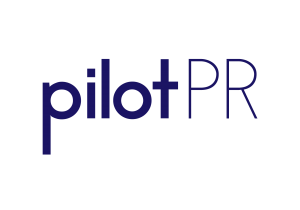In 2020, I saw many leaders start to proactively building their professional reputation. A combination of the upheaval of COVID meant more leaders started to think they need to set themselves apart to better deliver growth and engagement for their company, a slow down provided some people more time to think about their priorities and take action, or they could see others doing it so they decided they’d better get moving or be left behind.
If you’re already building your reputation or you’re thinking about it for 2021, here are six trends I think we’ll see more of this year.
1. Building their reputation = risk management…
When you get to the heart of it, building your professional reputation is a risk management strategy. If you’re on your way to the c-Suite, leading a growing business or looking to establish a boardroom career, being known by the right audiences stands you apart from your peers. If you’re a CEO, telling your and your organisation’s story and sharing wins and learnings means you build your profile in front of potential clients and partners and you’re a better leader of your people. The same goes if you’re an entrepreneur or business owner, especially if you’re building a business you eventually plan on selling.
Traditional networking has its place, but on its own isn’t enough. And no matter what your close network says about you, when it comes to engaging stakeholders and prospects, your internet reputation and what the media says about you trumps your personal reputation – especially when something goes wrong.

What Google says about you matters.
2020 has obviously been a hard year for many companies and professionals. Many employees have been made redundant or had their hours and salary reduced. Some industries have been devastated (travel, retail, hospitality…) and competition is increasing in others. So, as a business or as a professional how do you stand yourself apart when competition is stronger than ever? You build your reputation.
2. Being more human
When Covid blurred the lines between work and home we gained insight on how our colleagues and leaders live and work that had previously been private. Leading a company from your dining table like so many execs? On Zoom while your children home-school in the next room? We all saw that. What #WFH showed us last year is (for the most part) that as long as we lead well, be a good human and do what needs to be done, the rest doesn’t matter. We’ll continue to see more like this as leaders now know it’s ok to be more human because it’s authentic and honest.
 Working from home allowed us to be more human.
Working from home allowed us to be more human.
3. More empathy and value
In line with being more real about who we are, we’ll also continue to see leaders show more empathy and use their leadership position to deliver value when it comes to building their reputation. Leaders will of course share the wins, but more leaders will share the lessons learned from losses, share the glitches in projects that delivered for the business but weren’t without kinks, and they’ll also share their expertise so that stakeholders can learn from them.
4. You control the message
Trump’s presidency is the most recognised example of how a leader can use social media as a publishing platform to communicate their message. We sawmore leaders doing the same in 2020 and it will continue to increase this year. For a more local example of leaders doing this, Grocon CEO Daniel Grollo’s use of LinkedIn to tell Grocon’s side of the story in their legal battle with Infrastructure NSW is impressive. A seven-year legal battle with iNSW led Grocon to appoint administrators in November and Grollo used LinkedIn to tell his story to his 14,000 followers.
5. Picking the right platform and content for you
You don’t have to be on every available platform and media channel to build your reputation. Pick the platform or platforms that work for you and work with them. Like video? Communicate via that. Great at writing? Then write, via your blog, LinkedIn articles or opinion pieces for media. Going live wasn a growing trend in 2020 and is forecast to continue becoming more popular this year. Building your reputation shouldn’t feel hard. Where you build an audience and how you engage with them should be aligned to your strengths and personality.
6. Purpose
The leaders who know their purpose for building their reputation will make it in the long-term. According to research by Hootsuite: ‘nearly 86 percent of executives in Australia, New Zealand, and Asia believe having a social CEO is positive for a company’s reputation, and 76 per cent believe it enhances credibility in the market.’ We’ll see leaders be clear about why they’re using visibility as a tool to be better leaders, contribute to their industry, bring their people on the journey, communicate with customers, and create a career legacy. Leaders setting out on growing their reputation will be clear about these motivators and we’ll see more people who would previously have preferred to stay out of the spotlight come forward and build their profiles with purpose. It will help them lead their businesses with purpose and ensure their work in this area delivers for them in the long-term.
Here’s to 2021.
Angela Cross is a reputation strategist who works with c-Suite leaders and brands to build and protect their reputations through PR, corporate social media, industry profiling, stakeholder engagement, and effective issues management. If you would like to build your reputation with purpose and authority, email her here.



